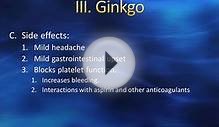
According to the most recent Diagnostic and Statistical Manual of Mental Disorders (DSM 5), there are nearly 400 different psychological disorders. Some of these disorders fit the definition of “disease, ” a problem that impairs functioning and that mostly stems from biological causes. Common examples include bipolar disorder and schizophrenia. Other “disorders” impair functioning but are determined by a more diverse array of causes, some of which are psychological and social / cultural in nature. In this sense, these conditions are not true “diseases.” Examples include anxiety disorders, depression, addictive disorders, and eating disorders.
The distinction between “diseases” and “disorders” helps to suggest appropriate treatments. In general, diseases require biological intervention. Research suggests, for example, that medication is very successful in helping individuals to manage symptoms that accompany bipolar disorder and schizophrenia. Although it may encourage them to take their medication regularly, manage stress effectively, and help with emotional struggles, research shows that psychotherapy generally does not help people overcome the symptoms of these diseases very well without biological intervention.
Biological treatments also may help people with disorders in some cases. For example, in one of the largest and most rigorous studies ever conducted on the treatment of clinical depression, researchers in the late 1980s found that antidepressant medication helped manage the symptoms of severe depression (which I would define as involving significant suicidal thinking, that often recurs, or that is chronic) more than other treatment options, at least during the time span in which individuals were taking the medicine.
On the other hand, decades of carefully controlled clinical studies have shown that medication often is not the best treatment for many disorders. Often times, any symptom relief that medication provides ends when individuals stop taking them.
Increasingly, I also see researchers skeptical of the underlying pharmaceutical claim that “chemical imbalances” of serotonin explain why some people struggle with emotional disorders. Apparently, some of the best evidence that there is a chemical imbalance of serotonin involved in disorders such as depression is that antidepressant medications sometimes help. However, this is akin to saying that if Tylonol sometimes helps you overcome a headache, then headaches must be caused by a “Tylonol imbalance.” This doesn’t necessarily take away from the fact that antidepressant medications can be helpful in some circumstances, but it does suggest, at least, that the mechanisms by which antidepressants sometimes work are in question by many in the scientific community.
Share this Post
INTERESTING PSYCHOLOGY VIDEO













